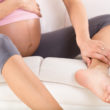Below are certain risk factors for breast cancer. Some of them can be changed such as smoking, alcohol consumption and the intake of oral contraceptives. Others such as heredity and age cannot be changed.
Gender – Even though it’s possible for men to develop breast cancer, the disease is 100 times more common in women.
Age – As a woman gets older, her risk of developing breast cancer is higher. Majority of breast cancer cases occur in women aged 50 years old and above.
Genes – It is said that 5 to 10 percent of breast cancer cases are hereditary in nature.
Family history – Women with close blood relatives afflicted with breast cancer are at high risk.
Race and ethnicity – Generally speaking, white women are more prone to developing breast cancer than African-American women.
Dense breast tissue – Women whose breasts are composed mostly of glandular and fibrous tissues than fatty tissue are said to be at higher risk.
Benign breast conditions – Being diagnosed with conditions like fibrosis, simple cysts, mastitis, atypical ductal hyperplasia and atypical lobular hyperplasia are risk factors too.
Lobular carcinoma in situ (LCIS) – Women suffering from this condition are highly recommended to undergo frequent doctor visits and mammograms.
Menstrual cycles – Women who started menstruating before the age of 12 and went through menstruation after 55 are said to be at higher risk.
Radiation exposure – Another risk factor for this type of big C common among women is previous exposure of the chest to radiation.
Diethylstilbestrol exposure – A drug against miscarriage called diethylstilbestrol (DES) was administered from the 1940s to the 1960s. Women who received DES are at risk of having breast cancer.
Pregnancy – Women who had no children or became pregnant for the first time after 30 are at risk. On the other hand, those who got pregnant at a young age are at lesser risk.
Oral birth control use – Breast cancer is likelier to strike women who use oral contraceptives than those who don’t.
Hormone therapy – Those who were given progesterone and estrogen after menopause are at higher risk of suffering and dying from breast cancer.
Breastfeeding – Mothers who breastfeed are said to have lower risk of suffering from breast cancer.
Alcohol consumption – especially when taken in excessive amounts, alcohol can increase a woman’s risk of developing not only breast cancer but other types of cancers too.
Obesity – Being overweight most especially after menopause is considered as a risk factor.
Smoking – Studies have shown that young women who smoke are at higher risk.
Unclear factors – There are certain things that may or may not increase a woman’s chances of developing breast cancer. Some of them include having breast implants, application of deodorants, use of bras, undergoing abortion and taking on night-shift works.













